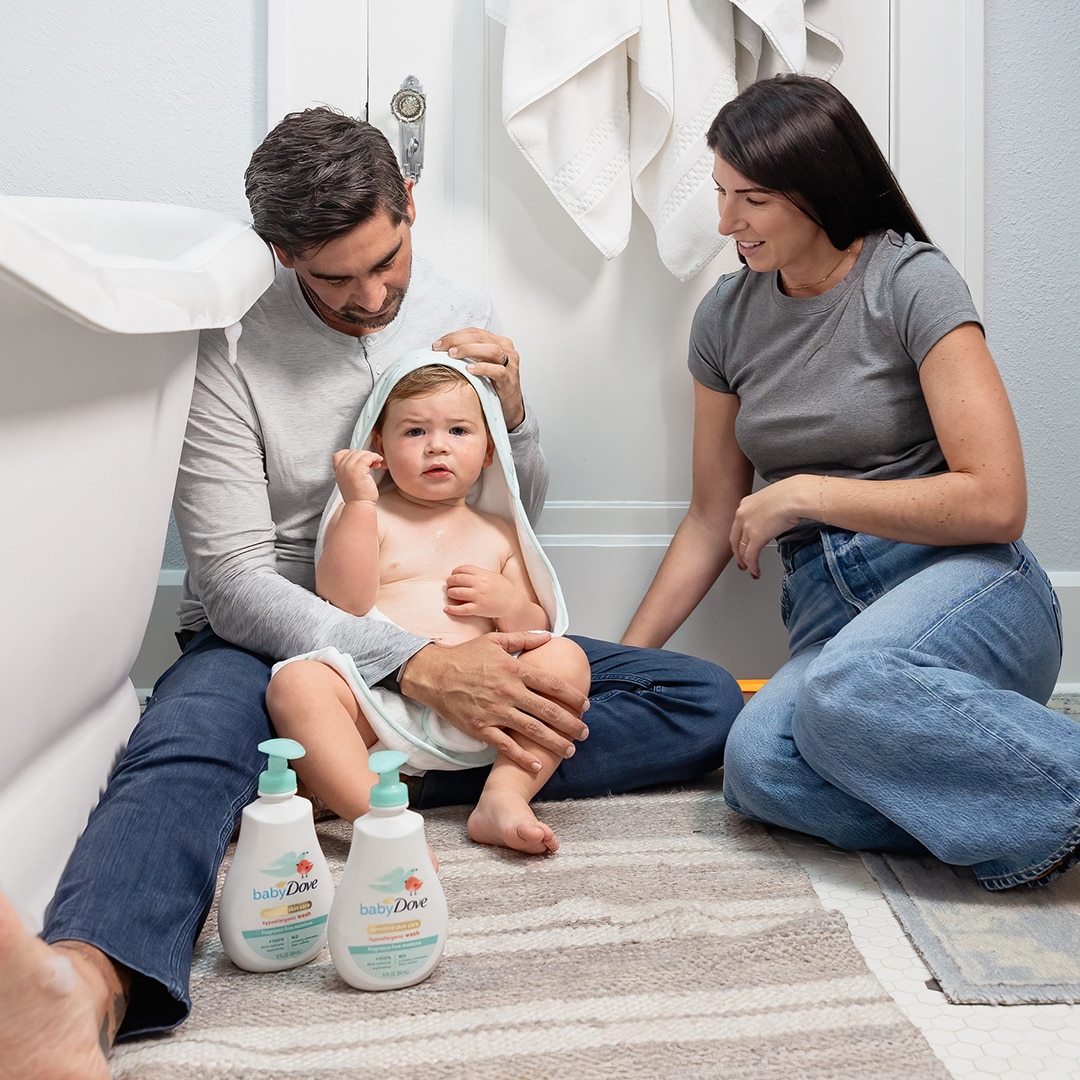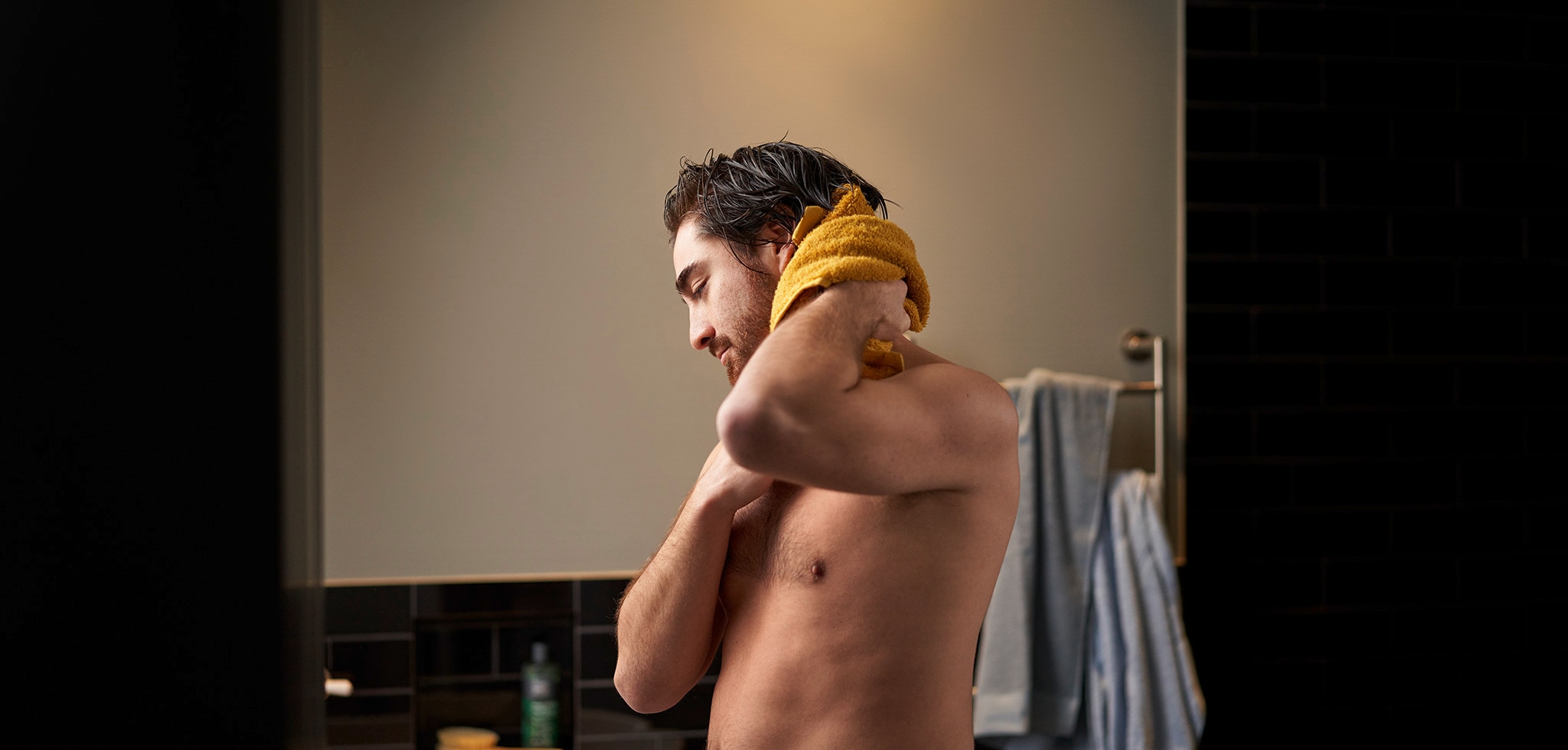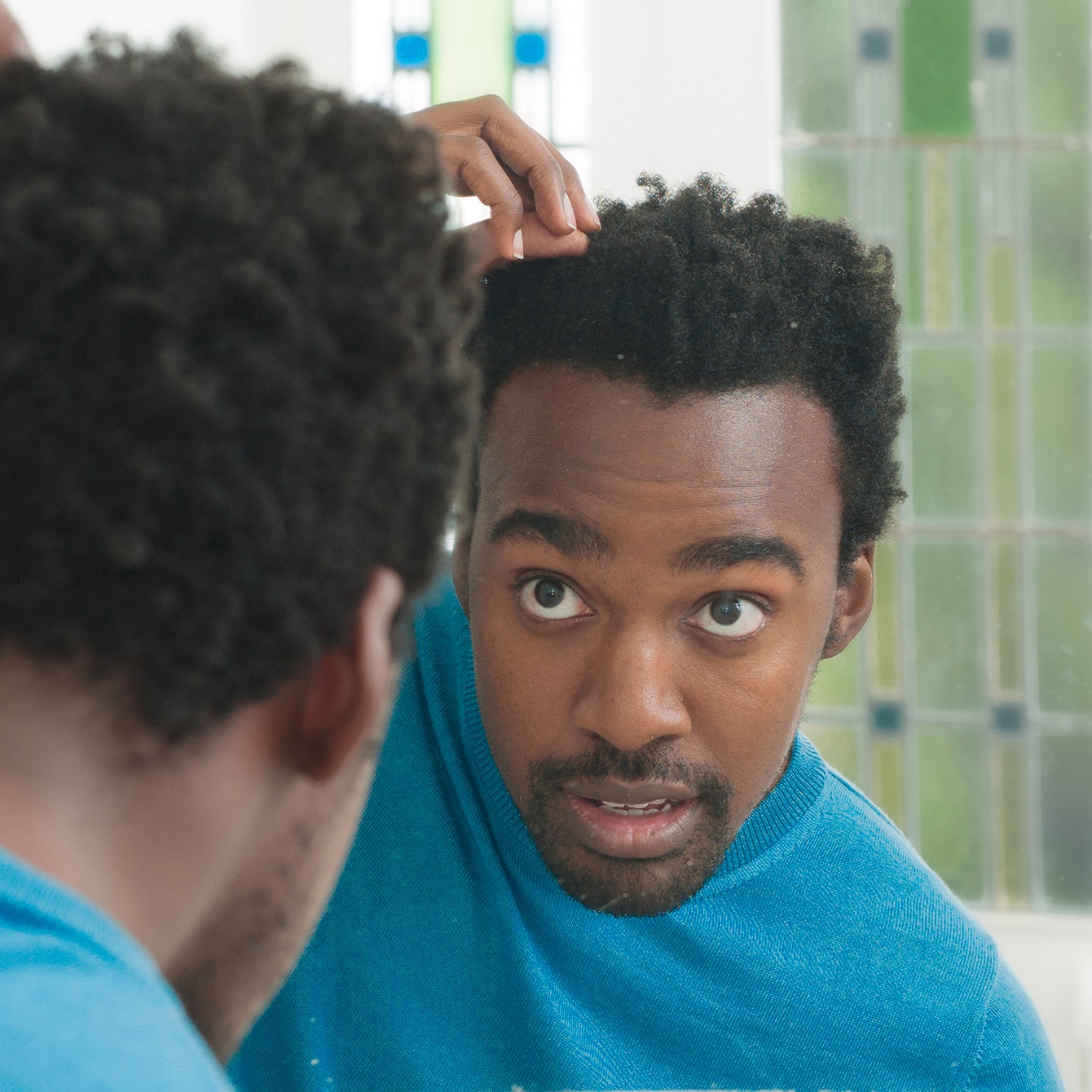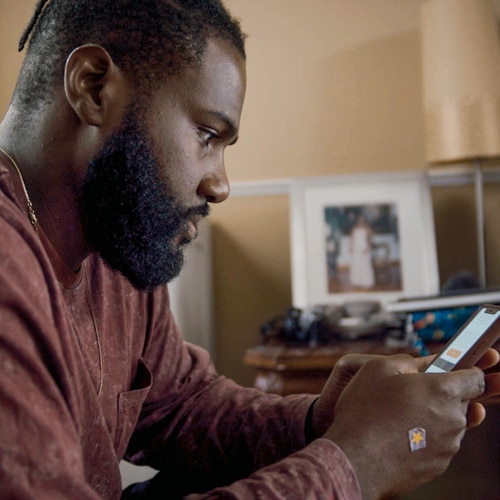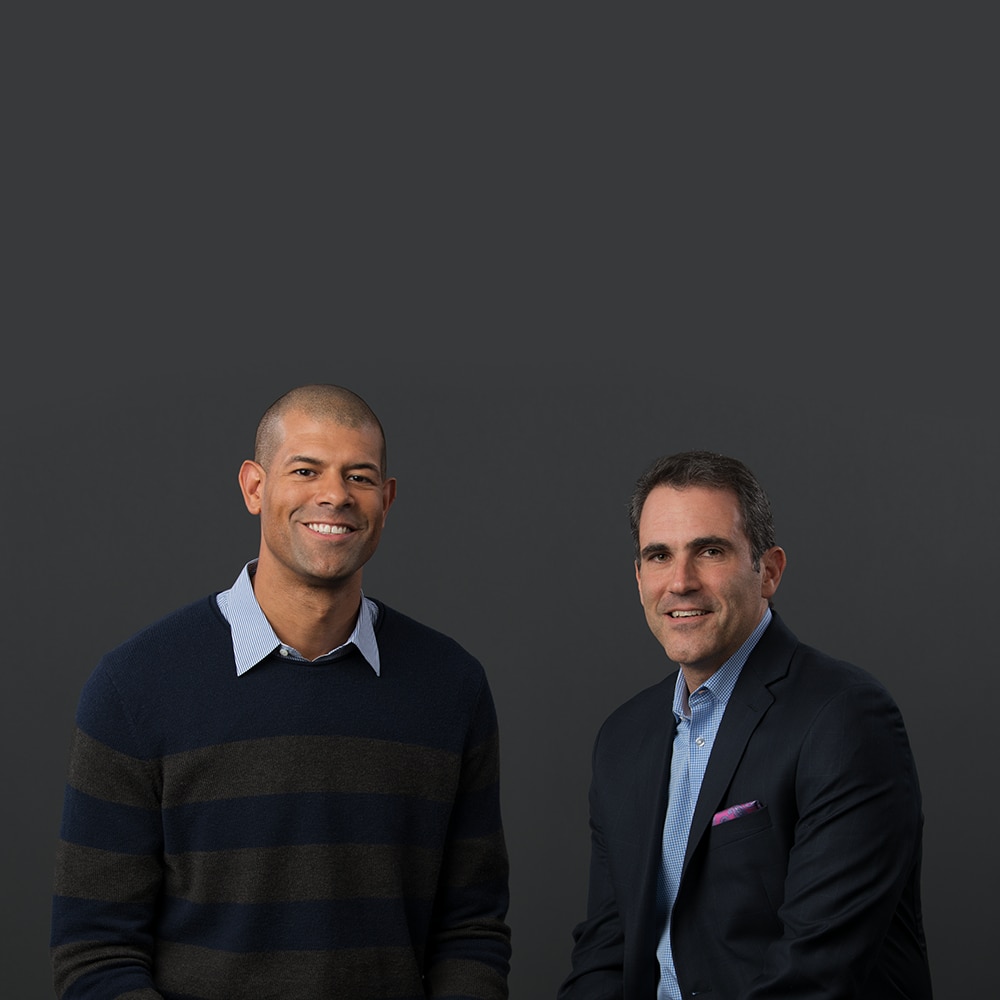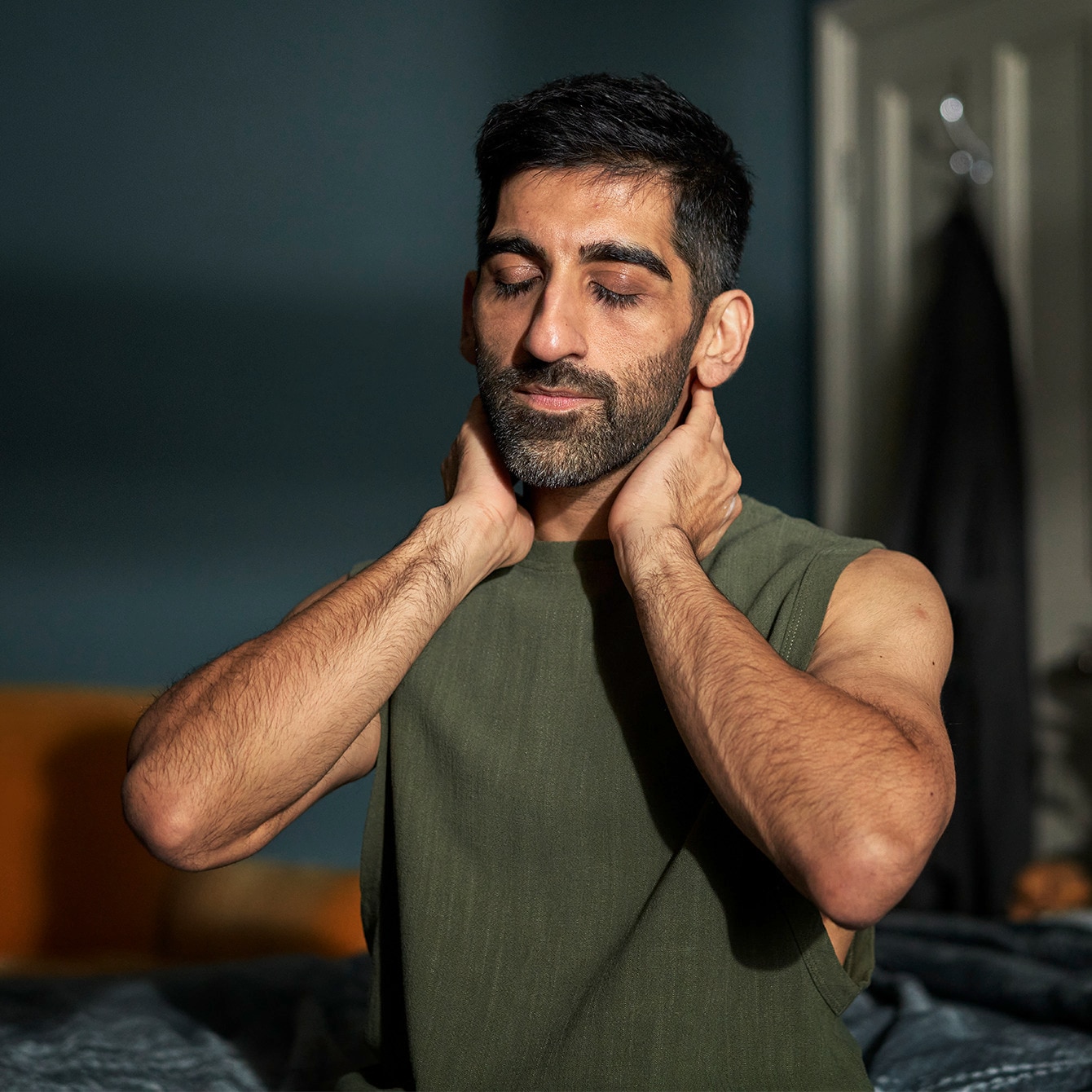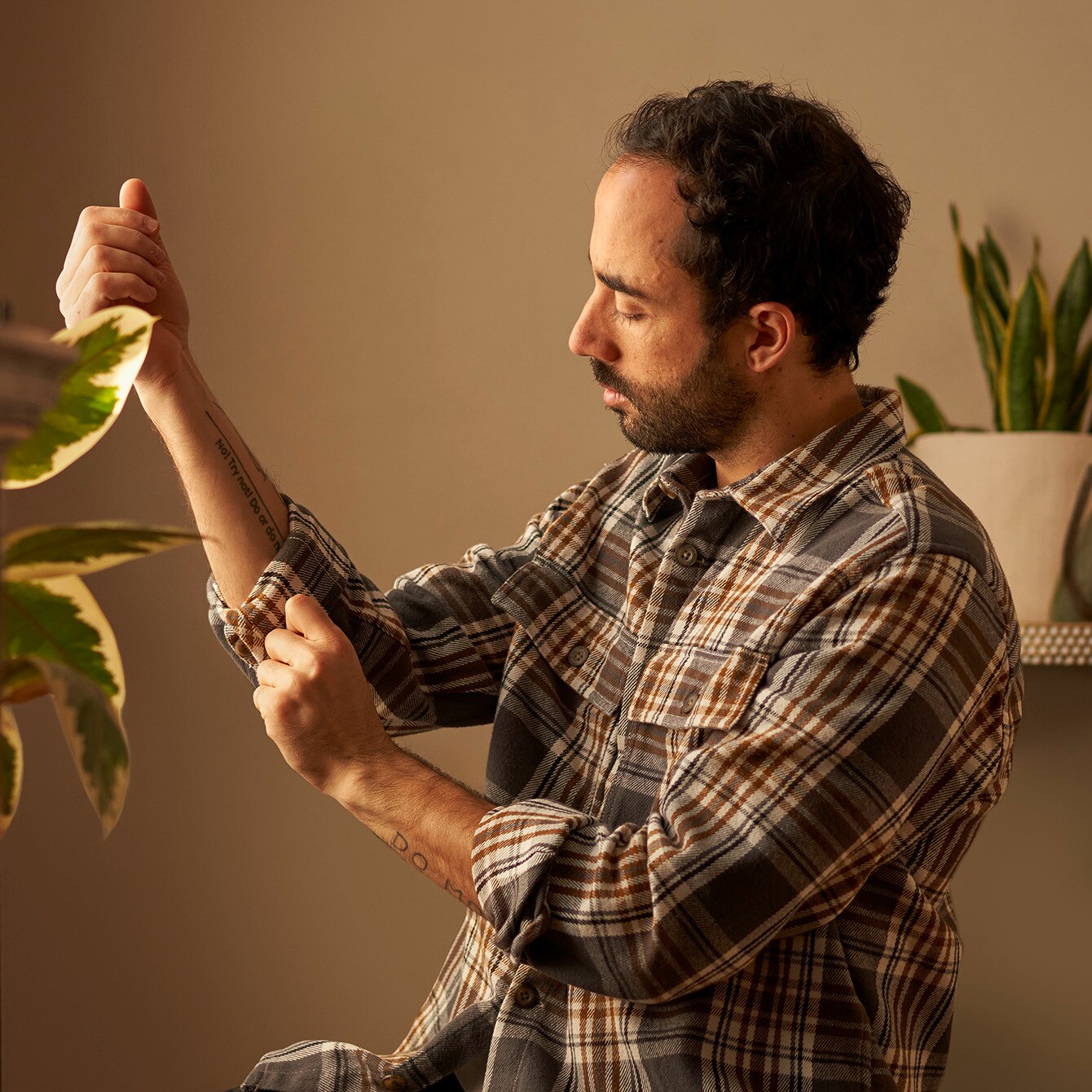So, what does it mean to be a man? A study by the Movember Foundation (PDF) shows 58% of men feel societal pressure to be emotionally strong and not show weakness. Research by Promundo and Unilever also suggests that restrictive stereotypes about men (and pressure to adhere to them) are linked to negative health outcomes for everybody.*
But now there is a new generation challenging the toxic clichés that can hold men and dads back. Here’s what modern masculinity means to three positive male role models.
Care is one of the most powerful examples of masculinity
Challenging stereotypes about men isn’t just about making society better today – it’s about being positive male role models for future generations as well.
“There are many more layers to fatherhood than previous generations were led to believe,” says Sean Williams, father and founder of The Dad Gang. “We’re not just providers and protectors – we’re also nurturers and caregivers. We don’t need to be traditionally masculine. We can be homemakers, too. I think masculinity is changing in a positive way. We’re a lot more in tune with self-care now.”
This sentiment is echoed by Dr. Gary Barker, CEO and Founder of Promundo. He believes in teaching children social connection and emotional self-care – rather than just physical.
He says: “They cry, they connect, they listen, they care, they’re brave enough to walk off the field when they’re hurt. We need to find ways to make those qualities the ones we all agree our sons (and daughters) need.”
Embrace holistic self-care as part of masculinity
According to Chris Maggee, who went on a journey from rugby to yoga, being competitive and acting tough are examples of masculinity that can hold men back – especially when they deny emotions like vulnerability, care and empathy.
“When I first began yoga I had a sportsman mentality,” he says. “But by being competitive, I was preventing myself from reaping the full benefits of my classes. After about six months, something clicked. I thought: ‘It doesn’t matter if I fall over or if anyone is watching me.’ The lack of pressure and expectation unlocked yoga’s benefits. I realized I wanted to distance myself from traditional fitness and move towards holistic fitness through yoga.”
Our unique study shows that there are huge benefits to expanding the meaning of care and what defines a man. Men who practice holistic self-care – a variety of activities like exercising, meditating and caring for their skin and mental well-being – are 2.2x more likely to find balance in their lives and 44% more likely to care for others.
“It’s all about balance,” continues Chris. “There’s nothing wrong with embracing masculinity. I still have moments of aggression and bravado, but also moments of softness and sensitivity. You don’t have to pick one side.”
Acknowledge + open up about men’s mental health
Our study also reveals that men who adhere to restrictive examples of masculinity are 14% less likely to communicate with others or care for themselves emotionally. But when men do practice emotional self-care there are huge benefits – including helping you de-stress and being more likely to spend 3+ hours on average per day caring for others.
The perks of emotional self-care are evident, so why is men’s mental well-being such a low priority for us? Elliot Powell, founder of Men2Health, a safe space for men to share their feelings, believes it’s societal pressure to conform to masculine stereotypes.
“As men, there’s pressure not to show weakness and a misunderstanding of what weakness is,” explains Elliot. “Having emotions and showing them is not weakness. Making mistakes or failing doesn’t always feel good, but you don’t need to deny these emotions. See it as growth. It’s not always positive things that get you to a good place.”
Like us, Elliot has learnt that amazing things happen when we shed limiting stereotypes about men and embrace emotional well-being.
“My followers have told me that Men2Health has helped them feel comfortable and open up to their families and friends,” he adds. “Being comfortable in your own skin is something I try to encourage in every man, because there’s no set definition of masculinity.”
How can I help support modern masculinity?
Read our guide on positive masculinity and discover how positive male role models can inspire this generation and the next.
*Heilman, B., Barker, G., & Harrison, A. (2017). The Man Box: A Study on Being a Young Man in the US, UK and Mexico. Promundo-US & Unilever.



